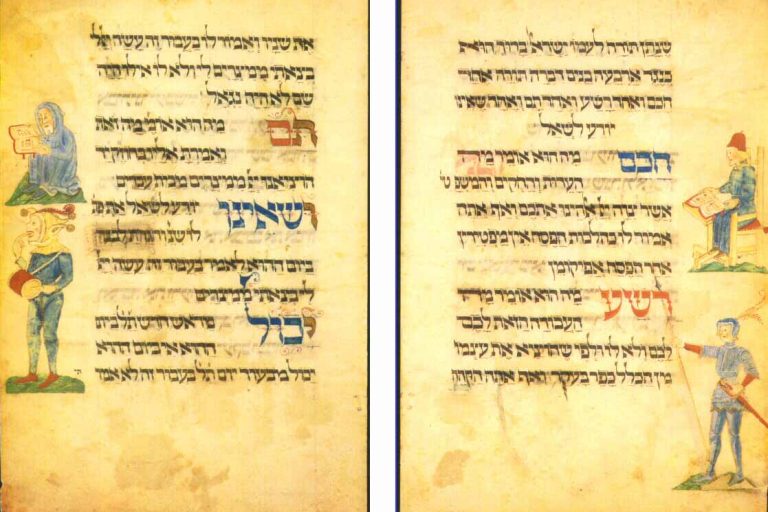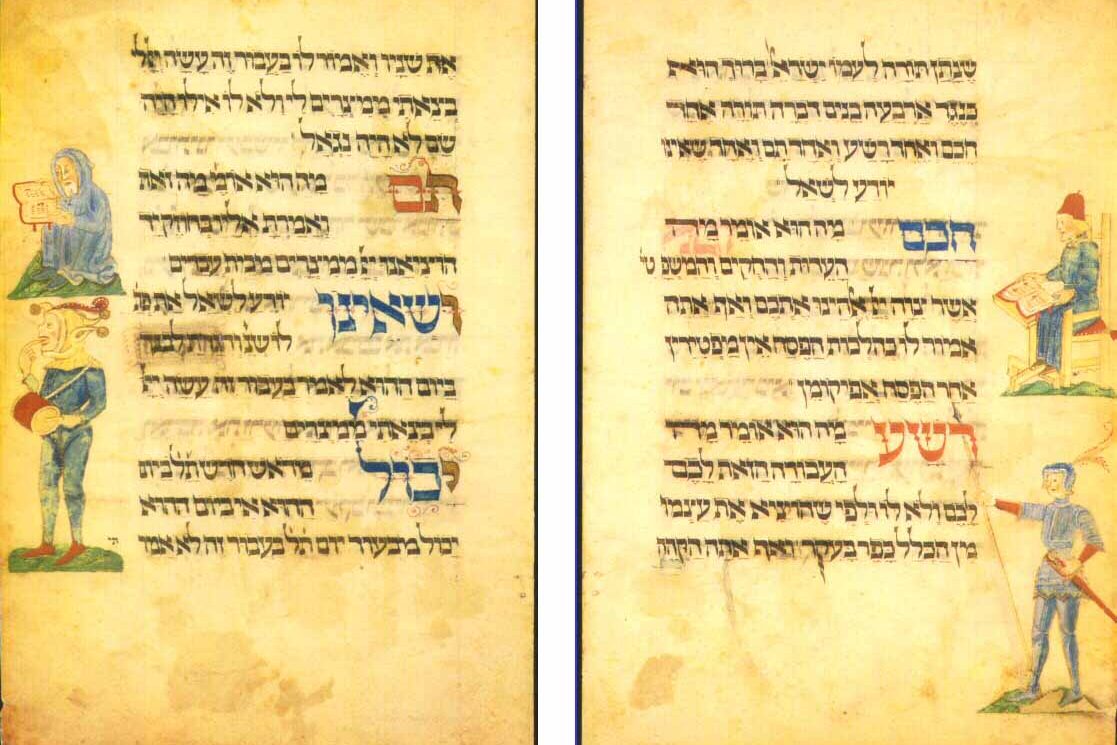Who are the Four Sons?
 The Haggadah continues the Q & A format in the Section dealing with the “Four Sons.” Here we meet the four personality types which exist within the Jewish People. It is clearly not simply an intelligence measure, because one of the sons is called a “Rasha,” a wicked person. Presumably, wickedness, or goodness, does not depend on intelligence. A “rasha” can be thoroughly, viscerally wicked, with a high IQ.
The Haggadah continues the Q & A format in the Section dealing with the “Four Sons.” Here we meet the four personality types which exist within the Jewish People. It is clearly not simply an intelligence measure, because one of the sons is called a “Rasha,” a wicked person. Presumably, wickedness, or goodness, does not depend on intelligence. A “rasha” can be thoroughly, viscerally wicked, with a high IQ.
[The Nazis proved that beyond a shadow of a doubt! Many of the Camp Officers were MD’s, professors, or other types of “respected” professionals. But enough of the Nazis!]
Similarly, a “tzaddik,” a righteous person, the opposite of a “rasha,” can be “smart” in the IQ sense or less-so.
We should also understand that although the Haggadah speaks of four distinct personality types, we all carry some measure of each one of them within us. It is our duty, therefore, to try to upgrade ourselves and move in the direction of the Chacham, the wise son.
We’ll now discuss the four sons in the sequence of the Haggadah:
- The “Chacham” – The “Wise” Son
- The “Rasha” – The Wicked Son
- The “Tam” – The Simple (or Lazy) Son
- The “She’aino Yodea Lishol” – The Son who Doesn’t Know Enough to Ask
1. The “Chacham” – The “Wise” Son
In light of the introductory remarks, we interpret the “Chacham,” the “wise” son, as being an individual who is not at all rebellious. He does not feel constrained by the Torah and does not feel that its rituals are meaningless performances. He wants to understand the Word of G-d, and He wants to understand the Torah on as many of its levels as he can.
Therefore, he asks, “What is the meaning of the testimonies, statutes, and laws which the L-rd our G-d has commanded us? He understands that he is a servant of Hashem, and asks only “What does the Master want me to do?”
He is therefore answered in a dignified manner, providing information and content, in accord with the attitude and tone of his question.
2. The “Rasha” – The Wicked Son
On the other hand, the Rasha does not admit or understand that his position with respect to Hashem is “servant to Master.” He therefore sees the many Mitzvot of the Torah as infringements upon his independence, the rituals as empty gestures which he wants no part of. Therefore he asks, “What does this service mean to you?
And he is answered in kind. This type of attitude is inappropriate for a Jew. Our highest goal should be to be like Moshe, a trusted servant of Hashem. If one wishes to exclude himself from the service of G-d, he excludes himself from the Community of Israel.
“If he were there (and he was not, and cannot have been, because of his self-exclusion) he would not have been redeemed.”
3. The “Tam” – The Simple Son
Following the approach we’ve outlined, the “Tam” is simple, unsophisticated, not because of external circumstances, but because he’s been too lazy and indolent to educate himself. He asks, unreasonably, for all the information in one fell swoop, like the request for all the knowledge of Judaism while he was standing on one foot, which was presented to Hillel and Shammai, more than two thousand years ago.
Hillel responded with the negative formulation of the Golden Rule, whereby one should not do unto others what is hateful unto oneself. He said, “That is the essence; the rest is commentary; now go and study.” Shammai basically showed him the door. (Tradition has it that in response to Hillel’s direction, the individual did go and study, eventually converted, studied a lot more and became a great Jewish Scholar.)
The Baal HaHaggadah follows the approach of Hillel, responding with the essence of the matter; namely, that it is a celebration of the Exodus from Egypt, which the Master of the Universe accomplished for us with a “strong arm.” That’s the essence; the rest is commentary; now go study!
4. The “She’Aino Yodea Lishol” – The Son who Doesn’t Know Enough to Ask
This fellow knows about as much about Judaism as the “Tam,” the Simple Son, but it’s not his fault! He is in the category of “Tinok she’nishba lvain ha’umot,” “an infant who was captured by non-Jews and was deprived, because of that misfortune, of the opportunity to learn about his true background and heritage.
To him, the Baal HaHaggadah recommends the approach of the Torah when it defines the educational obligation of the parent, “And you shall tell your child on that day as follows, ‘These (all the effort and all the preparations, all the Mitzvot and all the rituals) are on account of what the L-rd did for me when I came out of Egypt.’ ”
Tell him or her the what and the why, because he or she can handle it, is interested in it, and will grow from it!

